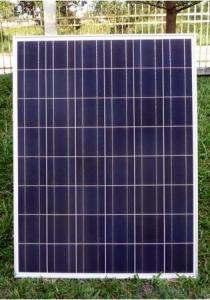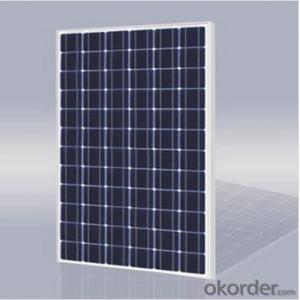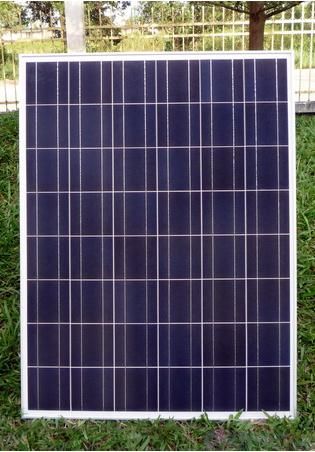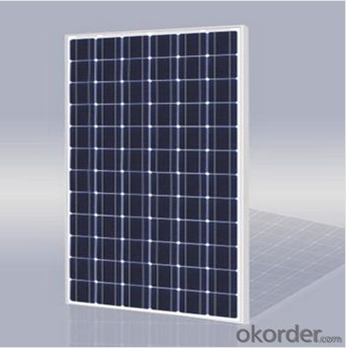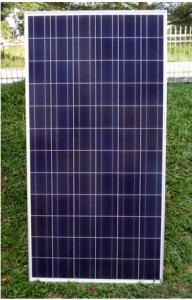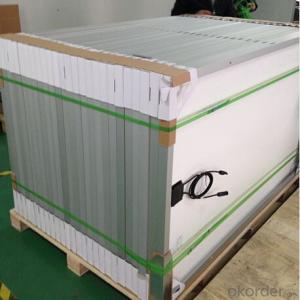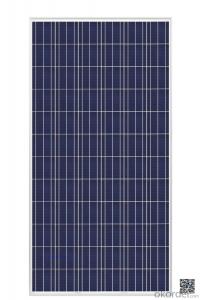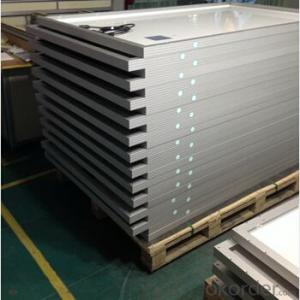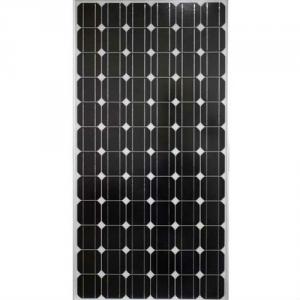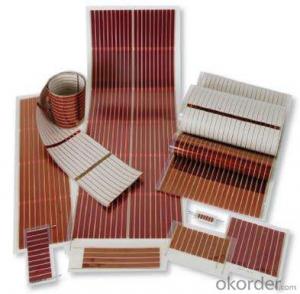Tandem Solar Cells 156mm Poly Solar Cell for 250W Solar Panel Wholesaler Price
- Loading Port:
- Shanghai
- Payment Terms:
- TT OR LC
- Min Order Qty:
- 26 watt
- Supply Capability:
- 5000 watt/month
OKorder Service Pledge
OKorder Financial Service
You Might Also Like
Specification
156x156mm 3BB Poly Solar Cells 6x6 with Sperior Quality for Solar Panel
Feature
1.High conversion efficiencies resulting in superior power output performance.
2.Outstanding power output even in low light or high temperature conditions
3.Optimized design for ease of soldering and lamination
4.Long-term stability,reliability and performance
5.Low breakage rate
6.Color uniformaity
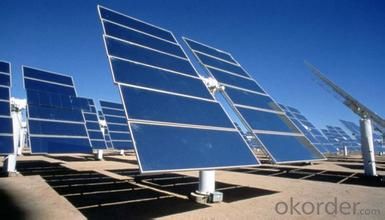
Physical characteristic
Dimension: 156*156mm±0.5mm
Thickness: wafer(Si):200μm±20μm
Cell:240μm±40μm
Front: silver bus bars;dark blue/others silicon nitride anti reflection coating
Back: silver/aluminum bus bars;full-surface aluminum BSF
Warranty
25-years limited warranty on power output: 10 years/90%, 25 years/80%
Packaging
The solar cells are packed in cartons, and then pallet.
Shipping by sea or by air are both ok, it's up to customer’s choice.
We’d like to inquire the freight cost for customer after be informed exact quantity and destination address
Special service we offer:
give credit for 90 days for those who has good reputation and would like to establish long term relationship with us.
- Q: How many solar cells are there in a solar panel?
- The number of solar panels in an installation depends on a few factors, mainly the amount of physical space available for the installation.
- Q: Can solar cells be used for electric vehicle charging?
- Yes, solar cells can be used for electric vehicle charging. Solar panels can generate electricity from sunlight, which can then be used to charge electric vehicle batteries. This allows for a sustainable and renewable source of energy for electric vehicle charging.
- Q: Can the 156x156mm high efficiency single crystal cells assembly function better compared to the traditional one?
- The media already commented a lot on the 156x156mm high efficiency single crystal cells assembly, which make me wonderabout its real function.
- Q: What are the different sizes of solar cells?
- Solar cells come in various sizes, ranging from small portable panels for charging devices to large-scale installations used in solar farms. The sizes of solar cells can vary based on the specific application and power output requirements.
- Q: Whether the solar cell is light can produce electricity
- As long as it is light to, and instantly can output voltage and in the case of a loop generated current. In physics called solar photovoltaic (Photovoltaic, photo light, voltaics volts, abbreviated as PV), referred to as photovoltaic.
- Q: Can solar cells be used in powering RVs and campers?
- Yes, solar cells can be used in powering RVs and campers. Solar panels installed on the roof of an RV or camper can convert sunlight into electricity, which can then be used to power various appliances, lights, and charging systems. This allows for a sustainable and self-sufficient power source while on the road or camping in remote locations.
- Q: Can solar cells be used in large-scale power plants?
- Yes, solar cells can be used in large-scale power plants. In fact, many countries are already utilizing solar power plants to generate electricity on a massive scale. These power plants consist of numerous solar panels or arrays that convert sunlight into electricity. With advancements in technology and decreasing costs, solar cells are becoming an increasingly viable option for large-scale power generation.
- Q: What are the safety considerations when installing solar cells?
- Some key safety considerations when installing solar cells include ensuring proper electrical grounding and wiring to prevent electrical hazards, following relevant building codes and regulations, using appropriate personal protective equipment (PPE) such as gloves and safety goggles, and taking precautions to avoid falls or injuries while working at heights. It is also important to carefully handle and dispose of any hazardous materials used in the installation process, such as chemicals or heavy metals found in certain types of solar panels.
- Q: Can solar cells be used in extreme climates?
- Yes, solar cells can be used in extreme climates. Solar panels are designed to withstand a wide range of weather conditions, including extreme heat, cold, humidity, and even harsh environments like deserts or arctic regions. However, the performance of solar cells might be affected by extreme temperatures or limited sunlight in certain climates, so proper planning and adaptation may be required to optimize their efficiency in those conditions.
- Q: What is the expected degradation rate of a solar cell?
- The expected degradation rate of a solar cell can vary depending on various factors such as the type of solar cell, the quality of materials used, the environmental conditions, and the maintenance practices. On average, however, most solar cells experience a degradation rate of around 0.5% to 1% per year. This means that the efficiency of the solar cell decreases by this percentage over time. Proper maintenance and regular cleaning can help mitigate degradation and extend the lifespan of a solar cell.
Send your message to us
Tandem Solar Cells 156mm Poly Solar Cell for 250W Solar Panel Wholesaler Price
- Loading Port:
- Shanghai
- Payment Terms:
- TT OR LC
- Min Order Qty:
- 26 watt
- Supply Capability:
- 5000 watt/month
OKorder Service Pledge
OKorder Financial Service
Similar products
Hot products
Hot Searches
Related keywords
